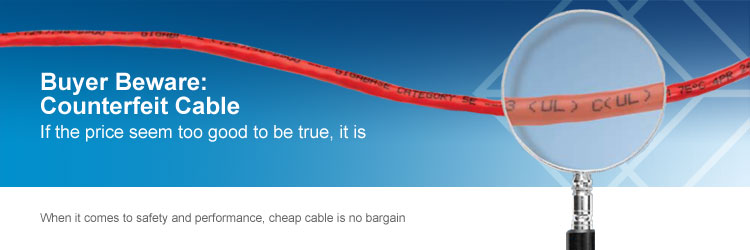Navigation |

Counterfeit CableWhen you see CATx cable priced significantly lower than Black Box cable (or other name brands), raise a red flag. The cable is probably counterfeit or very cheaply made, even if it sports a brand name, UL® number or ETL logo. Agencies and associations, including UL®, the Communications Cable & Connectivity Association (CCCA), and the legitimate cable manufacturing community, are not idly standing by while dangerous cable floods the market. It’s estimated that as much as 20% of the cable for sale now is unsafe, unapproved or counterfeit. Agency representatives and code officials are aware of the risks and are taking action to stop it before it stops you. If you’re planning to purchase cable, you need to know how to protect your team, organisation, and building – literally. When it comes to cable, you really do get what you pay for.
Signs of counterfeit and cheap cable...
|